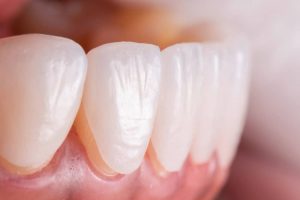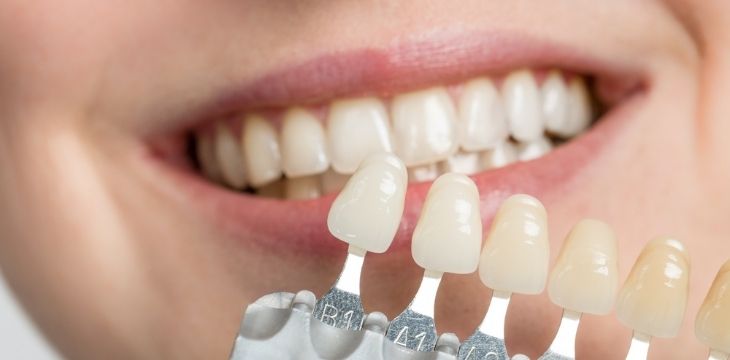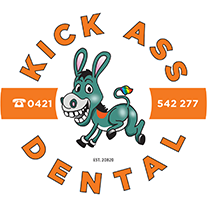Can You Go Back to Normal Teeth After Veneers?
Veneers are a popular cosmetic dental treatment that can dramatically improve the appearance of your smile. They are thin, custom-made shells of tooth-colored material that are bonded to the front surface of your teeth. Veneers can address various dental issues, such as discoloration, chipped or broken teeth, gaps, and even misalignment. While veneers offer a long-lasting solution to enhance your smile, it’s essential to understand whether you can go back to normal teeth after getting veneers.
Understanding Veneers and Their Longevity
Veneers are typically made from porcelain or composite resin materials. Porcelain veneers are known for their durability, natural appearance, and resistance to stains. Composite resin veneers, although less expensive, are not as long-lasting as porcelain veneers. However, regardless of the material, veneers are designed to be a permanent solution.
When you decide to get veneers, your dentist will prepare your teeth by removing a small amount of enamel from the front surface. This ensures a proper fit and allows the veneers to be securely bonded to your teeth. Once the veneers are in place, they are not reversible without replacing them.

The Limitations of Veneer Reversibility
It’s important to note that once you have veneers, you cannot go back to your natural teeth without replacing them. The process of preparing your teeth for veneers involves removing a small layer of enamel, which permanently alters the structure of your teeth. This means that even if you were to remove the veneers, your teeth would not be the same as they were before.
Additionally, the removal of enamel makes your teeth more susceptible to sensitivity. The enamel acts as a protective layer, and without it, your teeth may become more sensitive to hot, cold, or sweet foods and beverages. Therefore, it’s crucial to maintain good oral hygiene and visit your dentist regularly for check-ups and cleanings to prevent any issues.
Maintaining Veneers for Longevity
While veneers cannot be reversed, with proper care, they can last for many years, even decades. Here are some tips to help you maintain the longevity of your veneers:
1. Practice Good Oral Hygiene
Brush your teeth at least twice a day and floss daily to remove plaque and prevent gum disease. Use a non-abrasive toothpaste to avoid scratching the surface of your veneers.
2. Avoid Excessive Force
Avoid biting down on hard objects, such as ice or pens, as this can damage your veneers. If you grind your teeth at night, consider wearing a nightguard to protect your veneers and natural teeth.

3. Minimize Staining Agents
Avoid or limit your consumption of staining agents such as coffee, tea, red wine, and tobacco products. If you do consume them, rinse your mouth with water afterward or brush your teeth to minimize staining.
4. Regular Dental Check-ups
Visit your dentist for regular check-ups and cleanings. Your dentist will examine your veneers and make any necessary adjustments or repairs to ensure their longevity. https://kickassdental.com.au/
Considering Veneer Alternatives
Despite the irreversible nature of veneers, it’s worth exploring alternative cosmetic dental treatments if you’re hesitant about committing to a permanent solution.
1. Teeth Whitening: If your main concern is tooth discoloration, professional teeth whitening treatments can help brighten your smile. This non-invasive procedure can effectively remove stains and restore the natural color of your teeth.
2. Dental Bonding: Dental bonding is a process where tooth-colored resin material is applied to the surface of your teeth and shaped to enhance their appearance. While not as durable as veneers, dental bonding is a reversible treatment option that can address minor chips, gaps, and discoloration.
3. Orthodontic Treatment: If misalignment is your primary concern, orthodontic treatments like braces or clear aligners may be a suitable alternative. These treatments gradually shift your teeth into proper alignment, eliminating the need for veneers to correct the issue.
4. Dental Crowns: In cases where teeth are severely damaged or decayed, dental crowns may be a viable option. Crowns are tooth-shaped caps that cover the entire tooth, providing both aesthetic improvement and structural support.
It’s essential to consult with your dentist to determine which alternative treatment option is best suited for your specific dental needs and desired outcome.
Conclusion
Veneers are a popular and effective cosmetic dental treatment that can enhance the appearance of your smile. However, it’s crucial to understand that veneers are a permanent solution, and you cannot go back to your natural teeth once you have them. It’s important to consider the irreversible nature of veneers before committing to the procedure.
By practicing good oral hygiene, avoiding excessive force, and minimizing staining agents, you can ensure the longevity of your veneers. Regular dental check-ups are also essential for maintaining the health and integrity of your veneers.
If you’re unsure about getting veneers, there are alternative treatments available, such as teeth whitening, dental bonding, orthodontic treatment, and dental crowns. Discussing these options with your dentist will help you make an informed decision about the best course of action for achieving your desired smile.
Remember, maintaining good oral health and consulting with your dental professional regularly are key to enjoying a beautiful and healthy smile, whether you choose veneers or explore alternative treatments.





